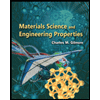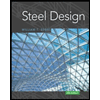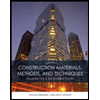The pin-connected structure shown in the figure consists of a rigid beam ABCD and two supporting bars. Bar (1) is a bronze alloy [E = 106 GPa] with a cross-sectional area of A1 = 210 mm2. Bar (2) is an aluminum alloy [E = 71 GPa] with a cross-sectional area of A2 = 610 mm2. All bars are unstressed before the load P is applied; however, there is a 4-mm clearance in the pin connection at A. Assume L1 = 2100 mm, a = 1100 mm, b = 650 mm, c = 500 mm, and L2 = 1430 mm. If a load of P = 127 kN is applied at B, determine (a) the normal stresses in both bars (1) and (2). (b) the downward deflection of point A on the rigid bar.
The pin-connected structure shown in the figure consists of a rigid beam ABCD and two supporting bars. Bar (1) is a bronze alloy [E = 106 GPa] with a cross-sectional area of A1 = 210 mm2. Bar (2) is an aluminum alloy [E = 71 GPa] with a cross-sectional area of A2 = 610 mm2. All bars are unstressed before the load P is applied; however, there is a 4-mm clearance in the pin connection at A. Assume L1 = 2100 mm, a = 1100 mm, b = 650 mm, c = 500 mm, and L2 = 1430 mm. If a load of P = 127 kN is applied at B, determine (a) the normal stresses in both bars (1) and (2). (b) the downward deflection of point A on the rigid bar.
Materials Science And Engineering Properties
1st Edition
ISBN:9781111988609
Author:Charles Gilmore
Publisher:Charles Gilmore
Chapter6: Introduction To Mechanical Properties
Section: Chapter Questions
Problem 8ETSQ
Related questions
Question
The pin-connected structure shown in the figure consists of a rigid beam ABCD and two supporting bars. Bar (1) is a bronze alloy [E = 106 GPa] with a cross-sectional area of A1 = 210 mm2. Bar (2) is an aluminum alloy [E = 71 GPa] with a cross-sectional area of A2 = 610 mm2. All bars are unstressed before the load P is applied; however, there is a 4-mm clearance in the pin connection at A. Assume L1 = 2100 mm, a = 1100 mm, b = 650 mm, c = 500 mm, and L2 = 1430 mm. If a load of P = 127 kN is applied at B, determine
(a) the normal stresses in both bars (1) and (2).
(b) the downward deflection of point A on the rigid bar.
![The pin-connected structure shown in the figure consists of a rigid beam ABCD and two supporting bars. Bar (1) is a bronze alloy [E =
106 GPa] with a cross-sectional area of A₁ = 210 mm². Bar (2) is an aluminum alloy [E = 71 GPa] with a cross-sectional area of A₂ = 610
mm². All bars are unstressed before the load P is applied; however, there is a 4-mm clearance in the pin connection at A. Assume L₁ =
2100 mm, a = 1100 mm, b = 650 mm, c = 500 mm, and L₂ = 1430 mm. If a load of P = 127 kN is applied at B, determine
(a) the normal stresses in both bars (1) and (2).
(b) the downward deflection of point A on the rigid bar.
(1)
a
b
B
A
Answers:
(a) σ₁ =
0₂ =
i
I
i
i
(b) VA=
MPa
MPa
mm
(2)
L2](/v2/_next/image?url=https%3A%2F%2Fcontent.bartleby.com%2Fqna-images%2Fquestion%2Feb6737e2-e510-46df-b80a-9e409938cdde%2Fe156dc2b-0f32-45ba-a9c5-116a1dd0266e%2Fverg2qr_processed.png&w=3840&q=75)
Transcribed Image Text:The pin-connected structure shown in the figure consists of a rigid beam ABCD and two supporting bars. Bar (1) is a bronze alloy [E =
106 GPa] with a cross-sectional area of A₁ = 210 mm². Bar (2) is an aluminum alloy [E = 71 GPa] with a cross-sectional area of A₂ = 610
mm². All bars are unstressed before the load P is applied; however, there is a 4-mm clearance in the pin connection at A. Assume L₁ =
2100 mm, a = 1100 mm, b = 650 mm, c = 500 mm, and L₂ = 1430 mm. If a load of P = 127 kN is applied at B, determine
(a) the normal stresses in both bars (1) and (2).
(b) the downward deflection of point A on the rigid bar.
(1)
a
b
B
A
Answers:
(a) σ₁ =
0₂ =
i
I
i
i
(b) VA=
MPa
MPa
mm
(2)
L2
Expert Solution
This question has been solved!
Explore an expertly crafted, step-by-step solution for a thorough understanding of key concepts.
This is a popular solution!
Trending now
This is a popular solution!
Step by step
Solved in 4 steps with 4 images

Knowledge Booster
Learn more about
Need a deep-dive on the concept behind this application? Look no further. Learn more about this topic, civil-engineering and related others by exploring similar questions and additional content below.Recommended textbooks for you

Materials Science And Engineering Properties
Civil Engineering
ISBN:
9781111988609
Author:
Charles Gilmore
Publisher:
Cengage Learning

Principles of Foundation Engineering (MindTap Cou…
Civil Engineering
ISBN:
9781337705028
Author:
Braja M. Das, Nagaratnam Sivakugan
Publisher:
Cengage Learning

Steel Design (Activate Learning with these NEW ti…
Civil Engineering
ISBN:
9781337094740
Author:
Segui, William T.
Publisher:
Cengage Learning

Materials Science And Engineering Properties
Civil Engineering
ISBN:
9781111988609
Author:
Charles Gilmore
Publisher:
Cengage Learning

Principles of Foundation Engineering (MindTap Cou…
Civil Engineering
ISBN:
9781337705028
Author:
Braja M. Das, Nagaratnam Sivakugan
Publisher:
Cengage Learning

Steel Design (Activate Learning with these NEW ti…
Civil Engineering
ISBN:
9781337094740
Author:
Segui, William T.
Publisher:
Cengage Learning

Construction Materials, Methods and Techniques (M…
Civil Engineering
ISBN:
9781305086272
Author:
William P. Spence, Eva Kultermann
Publisher:
Cengage Learning